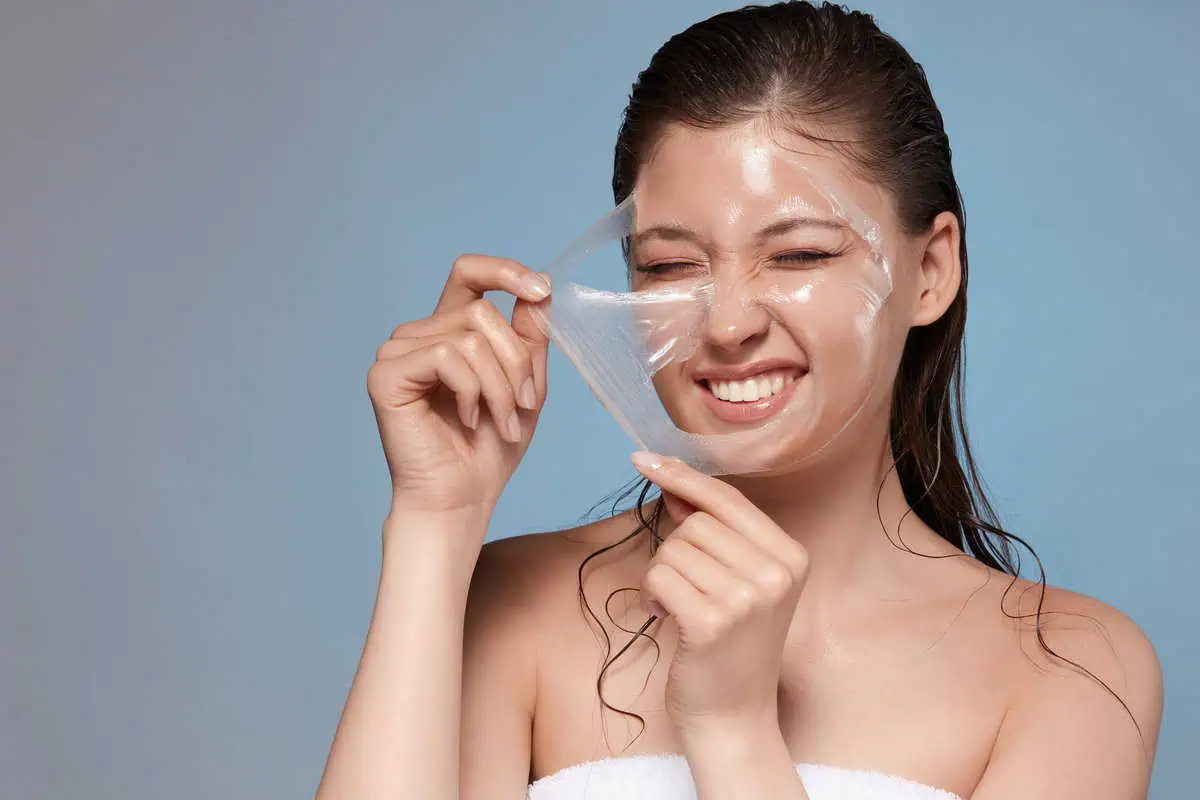
Acne scars can persist long after breakouts have healed, leaving behind unwelcome reminders of past skin issues. Chemical peeling provides a promising solution to this persistent problem. The Art of Skin offers a distinctive wellness experience through chemical peels, a solution that exfoliates and rejuvenates the skin. This treatment minimizes the visible signs of acne scars by stimulating collagen production and reducing acne scars. The result is smoother, clearer skin. Discover how chemical peels work, their benefits, and why they might be the ideal treatment for diminishing acne scars.
Understanding Chemical Peeling
Chemical peels, also known as chemical face peels, involve using a chemical agent on the skin. This agent causes the top layers of the skin to exfoliate and then peel off, showing newer, fresher skin underneath. Chemical peels differ in strength and depth, from superficial peels targeting the outermost skin layer to deep peels penetrating several layers. The process of chemical peeling stimulates the skin’s natural regeneration, promoting the growth of new skin cells and increasing collagen production. This rejuvenation can address various skin concerns, including fine lines, wrinkles, hyperpigmentation, and acne scars.
- How Chemical Peels Treat Acne Scars: Acne scars are often the result of inflammation caused by skin pores overflowing with excess oil, dead skin cells, and bacteria. When the pores swell, they can break the follicle wall, causing lesions. Minor lesions heal quickly, but infection can spread to surrounding tissue when there is a deep break in the follicle wall.
- Chemical Peel Mechanisms: Chemical peels effectively treat acne scars through multiple mechanisms. Dead skin cells are exfoliated, smoothing the skin’s surface and reducing the appearance of shallow scars. Chemical peels promote skin healing and restructuring by stimulating collagen production, gradually filling depressed scars. Additionally, they accelerate skin turnover, replacing scarred skin with new, healthy cells. Chemical peels also lighten dark spots and hyperpigmentation associated with acne scars, resulting in a more even skin tone.
- Benefits of Chemical Peels: Chemical peels extend beyond treating acne scars. They smooth out rough skin texture, making it feel softer and look more refined. Chemical peels create a more uniform complexion by reducing hyperpigmentation and sun damage. They also help to unclog and minimize pore size, preventing future breakouts. Additionally, skincare products are more easily absorbed after a chemical peel, increasing their effectiveness. As a non-invasive treatment option, chemical peels offer minimal downtime compared to more aggressive procedures like laser resurfacing.
- Side Effects and Risks: Chemical peels are generally safe if administered by a licensed medical aesthetician. Mild side effects, such as redness and irritation, are common after a chemical peel and usually subside within a few days.
Types of Chemical Peels for Acne Scars
Chemical peels have various strengths and formulations, each suited for different skin types and concerns. Here are some of the most common types of chemical peels used to treat acne scars:
- Glycolic Acid Peels: Extracted from sugarcane, glycolic acid is an alpha hydroxy acid (AHA) that smooths the skin by separating dead skin cells and removing them from the body. Glycolic acid peels effectively treat mild acne scars and improve overall skin texture.
- Salicylic Acid Peels: As beta hydroxy acids (BHA), salicylic acid enters the pores and exfoliates the skin from the inside out. It is ideal for oily & acne-prone skin, helping to reduce inflammation and prevent future breakouts while addressing acne scars.
- TCA (Trichloroacetic Acid) Peels: TCA peels are medium-depth peels that reach further into the skin than AHAs or BHAs. They are suitable for treating moderate to severe acne scars & provide more dramatic results.
- Phenol Peels: Phenol peels are the most potent chemical, penetrating deeply into the skin. They treat acne scars and other significant skin imperfections. However, due to their intensity, they require a longer recovery period and carry more risks.
The Chemical Peeling Procedure
Undergoing a chemical face peel involves several steps:
- Consultation: It is essential to consult a licensed medical aesthetician to determine the best type & strength of peel for your skin type and concerns.
- Preparation: Your skin will be thoroughly cleansed before the procedure to remove any impurities.
- Application: Depending on the desired depth, the chemical solution is applied to the skin and left on for some time.
- Neutralization: After some time, the chemical solution is neutralized and removed.
- Aftercare: To promote your skin’s healing, apply a soothing ointment or moisturizer.
Post-Treatment Care and Recovery
Proper aftercare is vital for attaining the best results from a chemical peel and ensuring a smooth recovery. Here are some key post-treatment care tips:
- Sun Protection: After undergoing a chemical peel, safeguarding your skin from the sun is vital as it becomes more sensitive. Apply sunscreen with a minimum SPF of 30 daily to shield your skin from the potentially damaging effects of UV radiation.
- Moisturization: In addition to sun protection, it is vital to keep your skin well-hydrated to prevent dryness and flaking. This can be attained by using a gentle, hydrating moisturizer regularly.
- Avoid Picking Acne: Avoid picking or peeling flaking skin, as this may result in scarring and increase the risk of infection.
- Gentle Skincare: Furthermore, until your skin has fully healed, it is recommended that you use mild, non-irritating skincare products and avoid harsh treatments such as exfoliants and retinoids.
Consult a Professional
Chemical peeling is a powerful and effective treatment for acne scars, offering numerous benefits such as improved skin texture, skin tone, and enhanced collagen production. Once you understand the types and applications of chemical peels, you can decide whether this treatment is right for you. Suppose you are considering a chemical peel for your acne scars. In that case, it is essential to consult with a qualified licensed medical aesthetician about the best approach for your skin type. With proper care & guidance, chemical peels can help you achieve smoother, clearer, & more radiant skin.
Takeaway
Chemical peels offer a highly effective method for reducing acne scars and improving overall skin health. By smoothing texture, evening skin tone, and minimizing pores, chemical peels provide a comprehensive approach to rejuvenating your complexion. Using this non-invasive treatment at The Art of Skin can transform your skin. Don’t let acne scars hold you back any longer. Let’s get started on a path to clearer, healthier skin. Contact us today or book an appointment to discover how our chemical peels can help you achieve the radiant skin you deserve.




